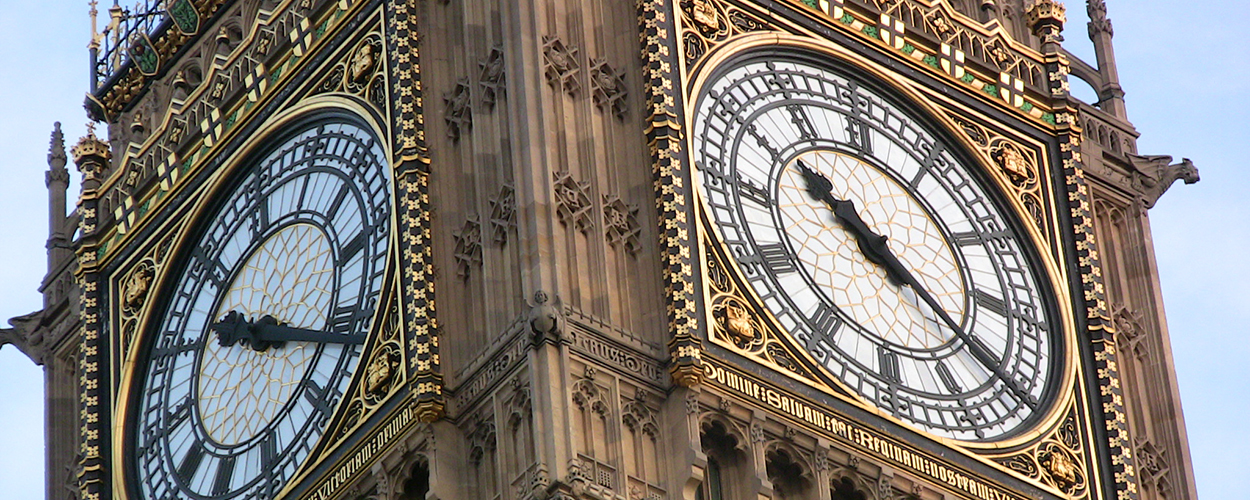This website uses cookies so that we can provide you with the best user experience possible. Cookie information is stored in your browser and performs functions such as recognising you when you return to our website and helping our team to understand which sections of the website you find most interesting and useful.
Business News Legal Live Business Top Stories
Lords back new ticket touting regulation beyond the bots ban
By Chris Cooke | Published on Thursday 30 March 2017

The House Of Lords yesterday backed proposals to go beyond the much talked about bots ban in the latest attempt to increase the regulation of secondary ticketing in the UK.
As much previously reported, the in-development Digital Economy Bill is set to outlaw the use of ticket touting bots, ie special software used by the touts to hoover up large quantities of tickets off the primary sites when they first go on sale.
Although the government initially argued that the use of such bots was probably already illegal under the Computer Misuse Act, ministers subsequently confirmed that they would support a specific bots ban being introduced via the DEB.
But as the legislation works its way through the Lords, Conservative peer Colin Moynihan, a former Chair of the British Olympic Association, proposed additional new regulation of the ticket resale market. His proposals basically involve expanding the obligations that already exist under the Consumer Rights Act that say ticket resellers must provide certain information about any tickets they are reselling, including seat numbers.
In part that compulsory information makes it easier for the buyer to see the kind of ticket they are buying, the mark-up they are paying and any restrictions on the ticket being bought. But in theory it also makes it easier for a show’s promoter to see any tickets that are being touted and, if they so wish, to then cancel those tickets.
However, campaigners complain that the rules introduced in the 2015 Consumer Rights Act are not being properly enforced and that even when touts do provide the required information, they sometimes fudge some of it – like the seat numbers – so that promoters can’t identify the specific tickets that are being touted. And, of course, at festivals and many smaller music venues tickets don’t usually come with a seat number anyway.
Under Moynihan’s proposal resellers would be obliged to provide additional information, including the booking reference of the original ticket purchase. This would in part stop speculative ticketing, where touts put on sale tickets they haven’t yet actually acquired themselves. It would also make it easier for promoters to identify touted tickets, including at events with no allocated seat numbers.
The bots ban is unusual in the secondary ticketing regulation domain in that the ticket resale sites like eBay’s StubHub and Live Nation’s Seatwave and Get Me In! generally support the move. However, the resale sites are opposed to further regulation like that being proposed by Moynihan in his DEB amendment.
The government also opposes the peer’s proposals, arguing not entirely convincingly that the Waterson Review of secondary ticketing rejected additional information requirements of this kind. But in the politically balanced Lords it’s easier to defeat the government, and peers voted in favour of Moynihan’s amendment despite the opposition of ministers.
That doesn’t mean that the government can’t try to get the extra secondary ticketing regulation taken out of the DEB as it goes through the final stages in Parliament, and it probably will. Though if these new regulations were to become law – and if that law was to be properly enforced – it would make it much easier for anti-touting artists and promoters to cancel tickets being resold on the big resale platforms as a matter of course.
The Lords’ vote was welcomed by the FanFair Alliance, which said in a statement this morning: “Despite concerted media and political scrutiny, the resale of tickets on platforms like Viagogo, Get Me In!, Seatwave and StubHub remains wholly lacking in transparency. This is the only online marketplace where buyers are given no identity about sellers – a peculiarity which is massively helpful to touts whose activities are anonymised, but not so much to consumers. It’s is a recipe for bad practice at best, and outright fraud at worst”.
It went on: “That’s why this small amendment to the Consumer Rights Act is so important, as it could help provide more certainty that a ticket actually exists in the first place, as well as crucial details about terms and conditions of resale. FanFair Alliance warmly welcomes the Lords’ decision last night, and alongside the other recent commitments we look forward to further discussions with government about how ticket resale can be made more transparent, honest and consumer-friendly”.





